Faculty listed below are available for media interviews. Please contact a Public Affairs staff member for assistance.
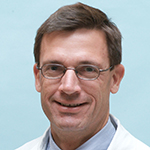
John N. Constantino
Blanche F. Ittleson Professor of Psychiatry and Pediatrics and director of the William Greenleaf Eliot Division of Child and Adolescent Psychiatry
Phone: (314) 747-6772
Email: constantino@wustl.edu
Constantino is an expert on the mental health and development of children. In the case of Ferguson, the tragic death of a young resident, protests and community tensions in its aftermath, and long-standing disparities in health and social support to families in our region all carry significant implications for the mental health of children in the community.
Constantino and the team of the Division of Child Psychiatry at Washington University provide comprehensive mental health services to children and families, and conduct research on the social, environmental, and genetic causes of mental health conditions of childhood, in order to develop the most effective interventions possible.
Over the years, their focus on preventable causes of long-term psychiatric conditions has extended to leadership and collaboration on a number of public health efforts to support children and families living in stressed, disadvantaged areas of St. Louis County and St. Louis City.
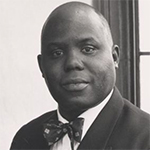
Garrett A. Duncan
Associate professor of education and of African & African-American studies in Arts & Sciences
Phone: (314) 935-8740
Email: gaduncan@wustl.edu
An associate professor of education with a joint appointment in African & African-American studies and courtesy appointments in American culture studies and urban studies, all in Arts & Sciences, Duncan has published extensively on black youth, identity, language and the social, political and moral foundations of U.S. public schools.
He has recently commented and published on the events surrounding the death of Michael Brown and its aftermath in the town of Ferguson, Mo. The Ferguson situation, he notes, is comparable to the 1992 unrest in Southern California following the Rodney King verdict as each represents a particular flashpoint with mainly local implications. Duncan predicts that any changes in Ferguson will be short term, as was the case in Los Angeles, primarily because of local and statewide Missouri politics. This is in contrast to the substantive changes that occurred in the wake of the 1960s’ protests, which had a strong and deliberative national apparatus and the support of a sitting president.
His views have been widely disseminated on NPR and in the United Kingdom/Australian-based The Conversation, the Switzerland-based Le Temps, and the Canadian-based Globe and Mail. Duncan has also discussed other topics in JET Magazine and the Christian Science Monitor and on Good Morning America and Al Jazeera English Television to name just a few other popular and news media outlets.
Al Jazeera America
After Ferguson, black activists hope for reckoning on race and policing
Public Radio International’s The Takeaway
In St. Louis, a long and troubled past with race
The Conversation
Michael Brown, Ferguson and the nature of unrest
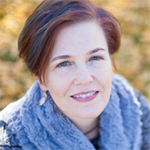
Clarissa Rile Hayward
Associate professor of political science and of urban studies, both in Arts & Sciences
Phone: (314) 610-1661
Email: chayward@wustl.edu
Hayward is a political theorist whose research and teaching focus on power, identity, urbanism and democracy. Her recent book, How Americans Make Race: Stories, Institutions, Spaces (Cambridge University Press) won the American Political Science Association’s prize for Best Book of 2013 in Urban Politics. The book provides an in-depth historical analysis of the development of racialized identities and spaces in the 20th-century United States and draws on the life-narratives of people who live in racialized urban and suburban spaces.
Hayward also is the author of De-Facing Power (Cambridge University Press, 2000) and co-editor (with Todd Swanstrom) of Justice and the American Metropolis (University of Minnesota Press, 2011). Hayward discusses the construction of racial identity in a 2013 “Hold That Thought” podcast and justice in modern American cities in a 2011 panel discussion on St. Louis Public Radio.
She recently wrote about structural racism in commentaries for the Washington Post, the Philadelphia Inquirer and the Cleveland Plain Dealer.
Chronicle of Higher Education
How Professors in St. Louis Are Teaching the Lessons of Ferguson’s Unrest
Wall Street Journal
Ferguson: Still Integrated, Still Divided; Efforts to Stem ‘White Flight’ Only Helped Fuel City’s Racial Tension
Washington Post
Is Ferguson anomalous?
Pacific Standard
Ferguson Is a Serious Outlier
Faculty website
Personal website
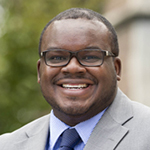
Darrell Hudson
Assistant professor, Brown School
Phone: (314) 935-3517
Email: dhudson@wustl.edu
Prior to his appointment at the Brown School, Hudson participated in the Kellogg Health Scholars Program. As part of this program, he completed a post-doctoral research fellowship at the University of California at San Francisco/Berkeley, where he conducted research in the area of social epidemiology.
Hudson also completed a research assistantship at the University of Michigan Institute for Social Research’s Program for Research on Black Americans. While in this role, he assisted with the analysis of the National Survey of American Life, which is a national panel study designed to investigate the mental health and mental health-seeking behaviors among African Americans, Caribbean blacks and whites. In addition, he served as the co-principal investigator of a Minority Health and Health Disparities International Research Training grant, which investigated the correlates of youth violence in Durban, Kwa-Zulu Natal, South Africa.
Also while at the University of Michigan, he assisted the Flint Youth Violence Prevention Center with the management and analysis of crime data and worked with the Flint Fathers and Sons Project, a CDC-funded intervention program designed to increase communication and active parenting among non-resident African American fathers and their pre-adolescent sons.
FiveThirtyEight
The Poorest Corner Of Town
Healthy Black Men
Black Men Under Pressure
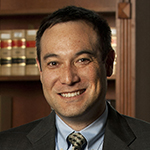
John Inazu
Associate professor of law and associate professor of political science in Arts & Sciences
Phone: (314) 935-6273
Email: jinazu@wulaw.wustl.edu
Inazu’s scholarship focuses on the First Amendment freedoms of speech, assembly, and religion, and related questions of legal and political theory. His commentary on Ferguson, Trayvon Martin and talking about race in the classroom and community is published in the St. Louis Post-Dispatch. Inazu’s first book, Liberty’s Refuge: The Forgotten Freedom of Assembly (Yale University Press, 2011), seeks to recover the role of assembly in American political and constitutional thought.
CNN.com
Are we Ferguson?
St. Louis Post-Dispatch
Let’s talk about race
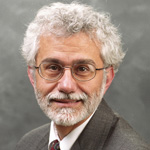
Peter Joy
Henry Hitchcock Professor of Law
Phone: (314) 935-6445
Email: joy@wulaw.wustl.edu
Joy is well known for his work in clinical legal education, legal ethics and trial practice. As director of the Criminal Justice Clinic, he supervises student-lawyers who provide direct legal representation to clients and work with experienced public defenders on criminal matters. In addition to his clinical work and teaching, Joy has written extensively and presented nationally and internationally on clinical legal education, legal ethics, lawyer and judicial professionalism, and access to criminal justice issues.
Washington Post
What’s next for Darren Wilson? These numbers could be a clue
U.S. News & World Report
Missouri Gov: I Didn’t Call for Charges
Al Jazeera America
Ferguson battles play out in the street, courts and the press
Associated Press
Credibility concerns in Missouri shooting probe
Christian Science Monitor
A legal look: Reasonable force or police brutality against Mike Brown?
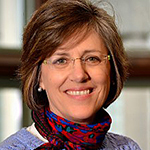
Laurie Maffly-Kipp
Professor in the John C. Danforth Center on Religion and Politics and in humanities in Arts & Sciences
Phone: (314) 935-8901
Email: maffly-kipp@wustl.edu
Maffly-Kipp is the author of numerous publications, including “Setting Down the Sacred Past: African-American Race Histories” (Harvard University Press, 2010) and “Women’s Work,” a co-edited collection of writings by African-American women historians (Oxford University Press, 2010).
She received the 2014 James W.C. Pennington Award for her research on African-American religion and history. The Heidelberg Center for American Studies and the Faculty of Theology at Heidelberg University in Germany established the prize in 2011 to pay tribute to James W.C. Pennington, an African-American churchman and former slave, who in 1849 was the first African American to receive an honorary doctorate from Heidelberg University.
The award is given to scholars who have distinguished work on topics important to Pennington: slavery, emancipation, peace, education, reform, civil rights, religion and intercultural understanding. The award includes a month-long stay in Heidelberg to engage in research on and to discuss these topics.
Religion & Politics
The Hope of Ferguson
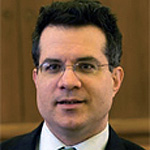
Gregory Magarian
Professor of law
Phone: (314) 935-3394
Email: gpmagarian@wulaw.wustl.edu
“The First Amendment lets us take to the streets in protest,” Magarian says. “It protects ‘the freedom of speech’ and ‘the right of the people peaceably to assemble.’ It doesn’t say ‘only during daytime hours, when police feel like letting us speak and assemble.’ By suppressing political protest, police in Ferguson are attacking the heart of the First Amendment.”
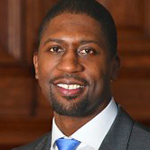
Lerone A. Martin
Assistant professor of religion and politics in the John C. Danforth Center on Religion and Politics
Phone: (314) 935-4344
Email: lerone.martin@wustl.edu
Martin’s first book project, “Preaching on Wax: The Phonograph and the Making of Modern African American Religion” (New York University Press, 2014), will be released this fall. The monograph tracks the role of the phonograph in the shaping of African-American religion, culture and politics during the first half of the 20th century.
He serves on the American Academy of Religion’s Afro-American Religious History Group. He was recently selected for the national Young Scholars in American Religion 2014-2016 cohort as one of the top ten pre-tenure scholars in American religion by the Center for the Study of Religion and American Culture at Indiana University-Purdue University in Indianapolis.
Martin can comment and provide perspective on the ways in which historical and present-day clergy involvement in social protests have contributed to and shaped events in Ferguson and beyond.
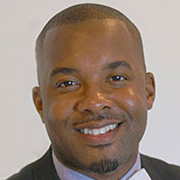
Jeffrey Q. McCune Jr.
Associate professor in the Women, Gender, and Sexuality Studies program and in the Performing Arts Department, both in Arts & Sciences
Phone: 314-935-4486
Email: jmccune@artsci.wustl.edu
McCune has written widely on issues relating to masculinity, particularly black masculinity, race and cultural politics, including a recent opinion piece on the Ferguson situation in the St. Louis Post-Dispatch. The author of “Sexual Discretion: Black Masculinity and the Politics of Passing,” McCune has a forthcoming project titled “READ!: An Experiment in Seeing Black,” which investigates other ways of “knowing” black men beyond our common, or “canonical” prejudices.
He says the book provides a new lens to approach the study of race and gender, toward an ethics of care and critical generosity. He also participated in a panel discussion at Washington University last September, titled “Conversations on Gender and Blackness in the Age of Trayvon Martin.”
McCune recently was named director of WUSTL’s Mellon Mays Undergraduate Fellowship Program, which aims to increase diversity in higher education by supporting undergraduate research and by encouraging talented but underrepresented students to pursue doctorates in the humanities and the social sciences.
He is available to discuss police violence, black-on-black violence, race and community culture, racism and police culture, militarization of police, masculinity, national solutions for police brutality, riot vs. revolt, and community mobilization.
St. Louis Post-Dispatch
A revolt against violence
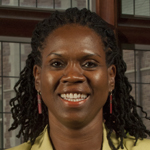
Kimberly Jade Norwood
Professor of law and professor of African and African- American Studies in Arts & Sciences
Phone: (314) 935-6416
Email: norwood@wulaw.wustl.edu
Norwood is an expert on the impact of race on education and the legal profession. She is the author of a recent book on racial and cultural issues titled “Color Matters: Skin Tone Bias and the Myth of a Postracial America” (Routledge, 2013). Norwood also teaches a workshop for St. Louis public school teachers as part of a grant provided by the U.S. Dept of Education’s “Teaching American History” program.
Norwood’s workshop is titled: “The Struggle for Education in Black America: From Slavery through the Reconstruction.” It is an interdisciplinary endeavor with other departments and programs within Washington University, including the history department, the education department, the American cultural studies program, and the African and African American studies program.
CNN.com
Why I fear for my sons
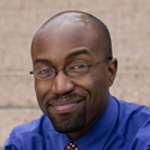
Jason Q. Purnell
Assistant Professor, Brown School
Phone: (314) 935-3738
Email: jpurnell@wustl.edu
Purnell, an expert on community health issues in urban environments, is the author of a multidisciplinary, landmark study called “For the Sake of All: A Report on the Health and Well-Being of African Americans in St. Louis.” Published this year in a series of reports, the study proposes solutions informed by evidence and community input and includes a call to action to community members and stakeholders. Trained in both applied psychology and public health, Purnell is a former director of community engagement with the United Way of Greater St. Louis. His research focuses on how socioeconomic and sociocultural factors influence health behaviors in low-income populations.
In comments related to his study of African-American well-being in St. Louis, Purnell said: “We have a highly segregated community with vastly different access to resources like education, jobs, food and safety, and this has a very real impact on how long people can expect to live, and the quality of life they can expect to have. It’s time to confront these realities as a community.”
“There’s a very real sense in which resources for living a healthy, productive life aren’t evenly distributed throughout the region,” Purnell told Bloomberg Businessweek.
He discussed For the Sake of All with National Public Radio.
Bloomberg Businessweek
Injustice in Ferguson, long before Michael Brown
The county map that explains Ferguson’s tragic discord
National Public Radio
In St. Louis area, a short distance can make a big difference
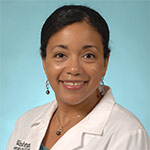
Cynthia E. Rogers
Assistant professor of child psychiatry
Phone: (314) 286-0105
Email: martinju@wustl.edu
In her clinical practice, Rogers works with many children and families in the neighborhoods affected by the recent unrest.
In the laboratory, she studies the relationship between abnormal brain development and psychiatric disorders in young children. In addition, she studies the impact of an adverse psychosocial environment on brain development.
She directs the NICU Behavioral Health Clinic and is co-director of the Perinatal Behavioral Health Service. Rogers practices at St. Louis Children’s Hospital, and she is board certified in general psychiatry, as well as in child and adolescent psychiatry.
Rogers can discuss how the protests, increased police presence and the violence surrounding Ferguson could impact child functioning and mental health. She can also discuss how the unrest impacts the children in Ferguson vs. the children who are less close to the epicenter but exposed through media.
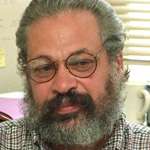
Robert W. Sussman
Professor of anthropology in Arts & Sciences
Sussman was a physical anthropologist who taught at Washington University since 1972 (now deceased).
He published many articles and books on primate ecology and behavior, human evolution, what it means to be human, and on race. He served as editor of American Anthropologist, the official journal of the American Association of Anthropology, and as editor of Yearbook of Physical Anthropology for the American Association of Physical Anthropology.
Anthropologists have studied the biology of race and, after extensive study of this topic, have issued statements that race is not a biological reality but is a very real social topic. In a book just published, “The Myth of Race: The Troublesome Persistence of an Unscientific Idea” (Harvard University Press, 2014), Sussman outlines this topic and discusses the history of racism from the Spanish Inquisition to the current day.
Washington Post
Racial divide: It’s a social concept, not a scientific one
Newsweek
There is no such thing as race
History News Network
This is the history behind the awful idea that mankind is divided into races
Reading Eagle
The myth of race
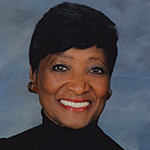
Carol Camp Yeakey
Professor of education and founding director, Center on Urban Research & Public Policy and Interdisciplinary Program in Urban Studies
Phone: (314) 935-6241
Email: cyeakey@wustl.edu
Yeakey is the founding director of the Center on Urban Research and Public Policy and of the Interdisciplinary Program in Urban Studies at Washington University in St. Louis. Her primary areas of research focus on the study of cities and their marginalized populations and the neighborhood and community contexts in which they live.
Having published numerous authored, edited and co-edited volumes on urban issues, her two most recently published volumes are: “Living on the Boundaries: Urban Marginality in National and International Contexts” and “Urban Ills: Twenty First Century Complexities of Urban Living in Global Contexts, Volume One and Two.”
The Washington Post
In St. Louis, Delmar Boulevard is the line that divides a city by race and perspective
Al Jazeera America
City of St. Louis still suffering from racial divide